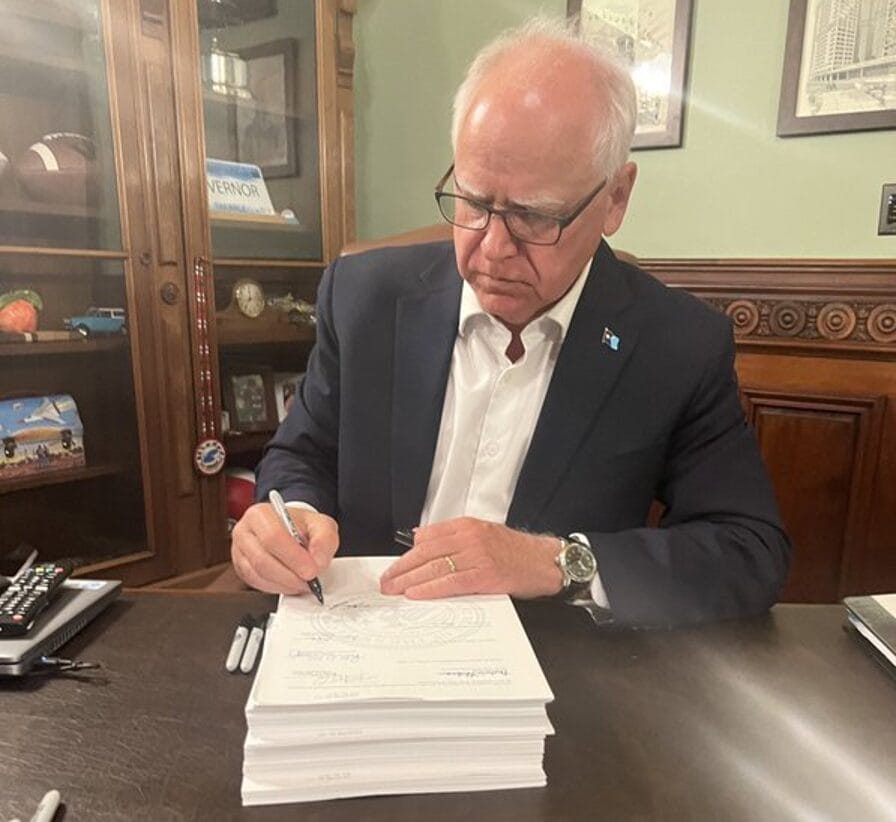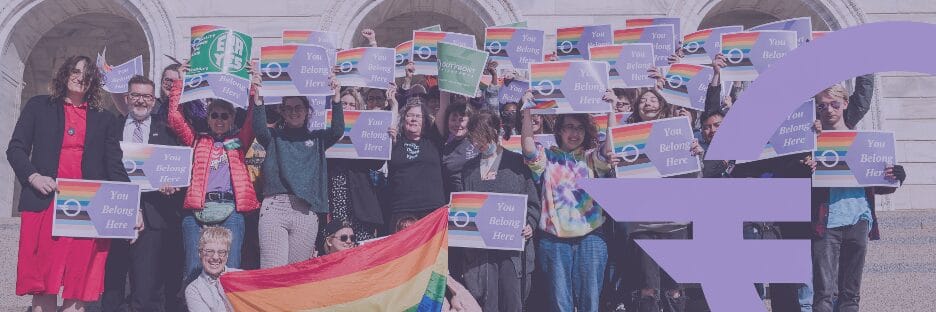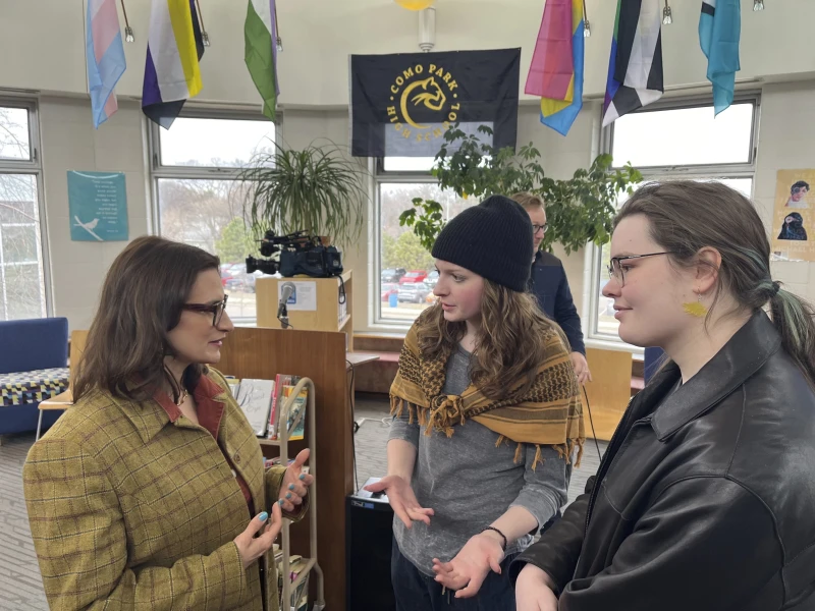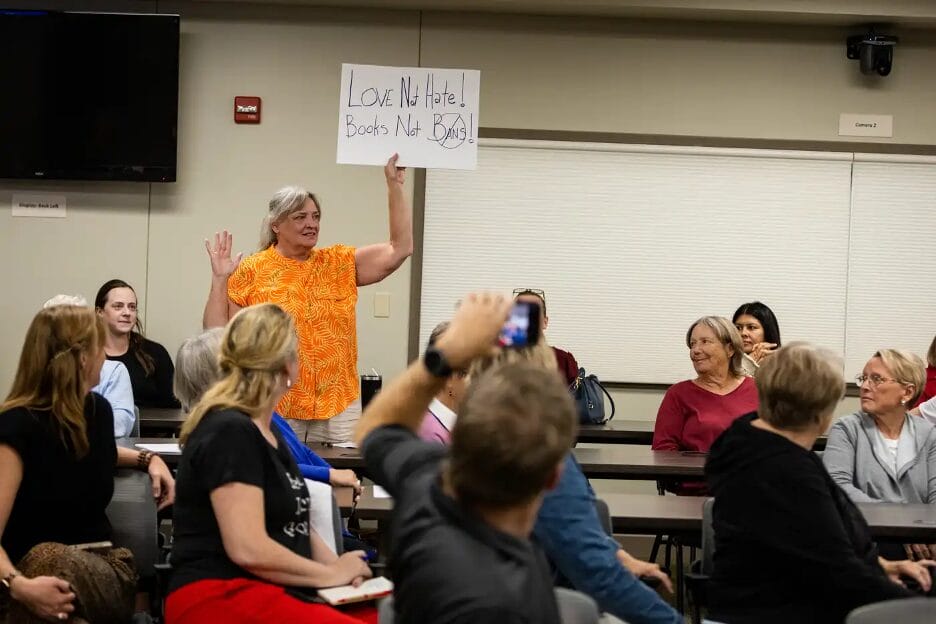By Jae Moore
With the stroke of a pen, Minnesota Gov. Tim Walz sent a strong message about book bans and anti-LGBTQ activists pushing them: Your regressive policies are not welcome here.
“Censorship has no place in our libraries. As a former teacher, I’m clear: We need to remember our history, not erase it,” said Gov. Walz on X.

Upon signing the Omnibus Education Policy Bill (SF3567) into law May 17, Minnesota’s governor joins leadership in Illinois, California, and more recently Maryland in passing intellectual freedom protections. Several other states are currently reviewing or have previously weighed similar bills to varying degrees of success.
Effective immediately, SF3567 bans book and material removals or restrictions from public libraries, schools, and higher education institutions. The law ensures library staff control over the book and material selection process, and the ability to retire books that are beyond salvaging. It also renders illegal the removal of titles written by or about LGBTQ people and/or people of color. Lastly, it preserves the right of parents to choose learning materials they deem appropriate for their kids.

Kat Rohn, executive director of OutFront Minnesota, the state’s largest LGBTQ advocacy organization, celebrated the win, one of several initiatives passed in the state this year including requiring coverage of transgender health care from public and private insurance plans, ending LGBTQ panic defense, and expanding access to PEP/PrEP HIV prevention medicine.
“We believe that everyone should have access to content in school and public libraries that reflects our richly diverse communities and experiences. All too often, including here in Minnesota, we have seen content challenges seeking to remove LGBTQ+ and BIPOC voices and stories from libraries,” they said. “This session, we made it clear – banning books does not reflect our Minnesota values of welcome and inclusion. We are grateful to Governor Walz for signing this important legislation into law.”
Students like 18-year-old high school senior and activist Shae Ross are also grateful for the newfound protections the bill provides.
“For a lot of teenagers, LGBT teenagers and teenagers who maybe just don’t feel like they have a ton of friends, or a ton of popularity in middle or high school … literature becomes sort of an escape.” Ross told the AP. “Especially when I was like sixth, seventh grade, I’d say reading books, especially books with gay characters … was a way that I could feel seen and represented .”

Last fall, Ross took action when she saw the all-too-familiar tidal wave of ideological warfare approaching her school district. Organizing with a group of friends, Ross convinced Bloomington Public Schools to make banning books more difficult, an accomplishment recognized by Gov. Walz during a visit to a local high school in March. In addition, students at Bloomington’s Jefferson and Kennedy high schools formed the “Bloomington Freedom to Read” club. Co-founder Kate Bovin cautioned that “school libraries are literally under siege” as groups like “Bloomington Parents Alliance” target the LGBTQ community.
“The entirety of the books in middle school and elementary school feature transgender characters,” Bovin said in an interview with Minneapolis-St.Paul’s Fox 9. “I am transgender. And so for me, that kind of is a really dark idea that like simply my existence inside of an elementary school is some sort of thing that needs to be removed.”
It’s not just students who are sounding an alarm. Concurrent to student efforts, local parents formed “Ban Hate Not Books Bloomington” to combat censorship efforts.
“These books should be included in our school libraries for anyone who wants to choose them,” said Anita Smithson, one of the group’s organizers. “It’s not just about books. It is about erasure of people and ideas and concepts that some don’t want to face.”
According to a recent American Library Association report, in 2023 Minnesota libraries faced 22 attempts to restrict book access encompassing 45 titles (out of a nationwide total of 1,247 demands and 4,240 titles). Meanwhile, school boards like Bloomington have been subjected to an increased number of challenges and confrontations, a majority of which originate from community members who have no enrolled children.
The November 2023 election proved efforts such as these to be unpopular in several states, and voters largely rejected candidates backed by the pro-book banning organizations Moms for Liberty and Minnesota Parents Alliance. As people become increasingly wary of the erosion of their rights, Truthout’s Kwolanne Felix suggests the model set forth by states like Illinois, California, and now Minnesota could be repeated elsewhere.
“There are many opportunities for progressives to step up and ensure that public knowledge isn’t being attacked right under our noses,” noted Felix, “from engaging in local elections, to visiting libraries and supporting their work highlighting diverse stories, or pushing back against conservative school board takeovers and uplifting student-led groups.”













